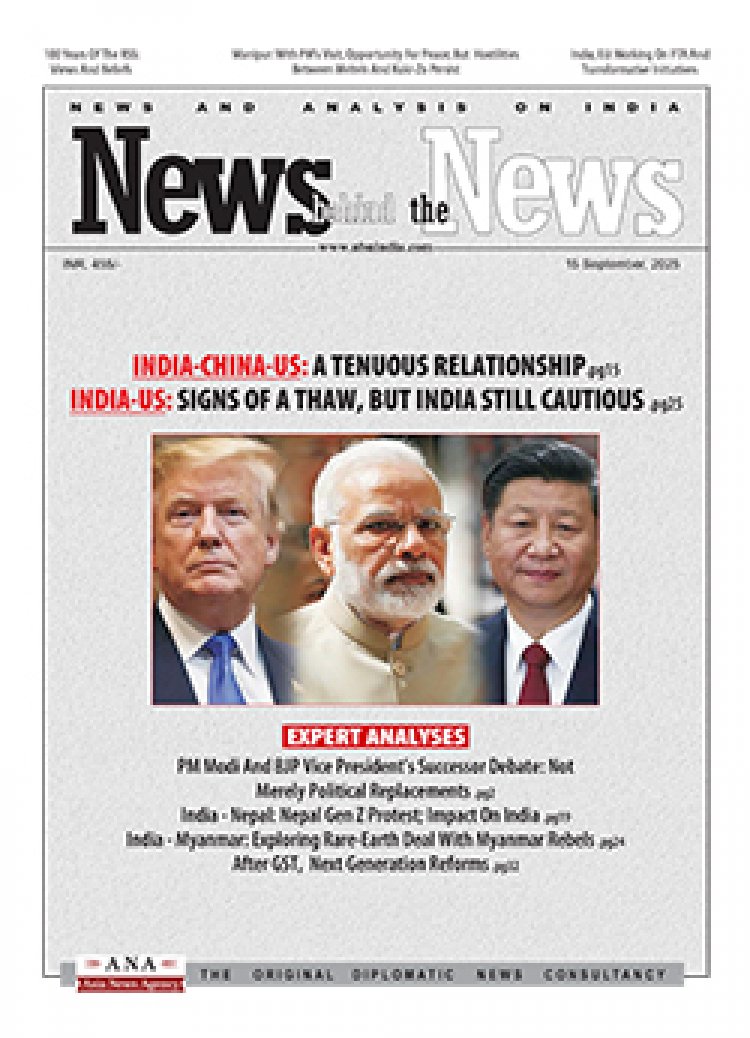Manipur: Peace Remains Elusive
Asia News Agency

Earlier this month, a spokesman of a leading Kuki civil society group said in a television debate that his community would never talk to Meiteis and the only time they could consider talking to them would be during the signing of an agreement that would grant the Kukis a ‘separate administration’, obviously outside the jurisdiction of the state of Manipur.
If this is the general mood among all Kuki-Zo civil society groups, Wasbir Hussain (author and political commentator, is editor-in-chief of Northeast Live, Northeast India’s only satellite English and Hindi news channel) believes “then the efforts of the Government of India’s home ministry to reduce the trust deficit between the two warring groups, the Kukis and the Meiteis in Manipur, may not yield results.”
The Union home ministry has so far held four rounds of trust-building talks with prominent civil society groups representing the Meiteis and the Kukis since President’s Rule was imposed in February this year. However, these talks were held separately with the leaders of the two communities with the hope that at some point, they would sit together and discuss the peace roadmap.
Emphasis on free movement
What the MHA is aiming at is to first deal with issues like free movement of people from both sides into the territory of the other side because ever since the ethnic violence began on May 3, 2023, the Kukis have not ventured into the Imphal Valley, comprising six districts, while the Meiteis have not visited the Kuki-dominated hill districts like Churachandpur and others. Even the 10 Kuki-Zo MLAs, notes Hussain have not visited the Imphal Valley since May 2023 and have missed all the state Assembly sessions held in the capital Imphal during this period.
While leading Meitei civil society groups have stated publicly that they have no objection to people belonging to the Kuki-Zo community coming to the Imphal Valley, leaders of groups like the Kuki Inpi, an influential Kuki civil society organisation, have been saying in the media that they are okay with the free movement of goods and essential commodities between the Imphal Valley and the hill districts, but were not open to the free movement of people as yet.
Return of rehabilitation internally displaced people
Another urgent issue “is the rehabilitation of 57,000 internally displaced people (IDP), who have been living in makeshift relief camps for more than two years now with immense hardships. Here, too, there seems to be a difference in approach by the Meitei and Kuki IDPs. While some Meitei IDPs who have been uprooted from their homes in Kuki-dominated areas want to return to their homes in Churachandpur, Moreh and other places, the Kukis displaced from their homes in Imphal and other Meitei-dominated areas are reluctant to settle again in their original homes in the Imphal Valley, accusing the Meiteis of being the ‘perpetrators’.”
The Manipur governor Ajay Kumar Bhalla has meanwhile said that all relief camps, numbering around 350, housing the IDPs will be shut by December this year.
The main trigger of the ethnic clash, recalls Hussain was the demand to grant Scheduled Tribe status to the Meiteis. The Kukis opposed it, saying the Meiteis were an ‘advanced community’ and as such granting them ST status will deprive the Kuki-Zo community of benefits like reservation in jobs and educational institutions. The Kuki-Zo groups were already seeking maximum autonomy for the hill areas that they inhabit. But after the ethnic violence they have upscaled their demand for a ‘separate administration’. "The Kuki-Zos are either hoping to achieve a Union territory for the community, if not a separate state. The stand of the Meiteis is well known: that there will be no dismemberment of Manipur.”
Demand for restoration of a ‘popular government’: Amid these developments, “there is a clamour for the restoration of a ‘popular government' in Manipur…”
Breaking the stalemate not easy
But the big question is: “without the participation of the Kuki-Zo elected representatives in any new Manipur government, the stalemate cannot be broken. And organisations like the Kuki Inpi issued a diktat to the ten Kuki-Zo MLAs not to participate in any government formation process in Manipur. On the whole, the deadlock continues in almost all major fronts in the state where peace is elusive, to say the least.”
















